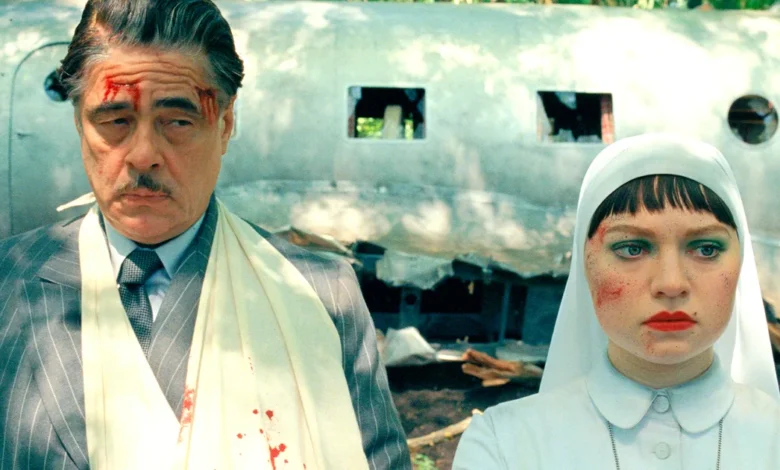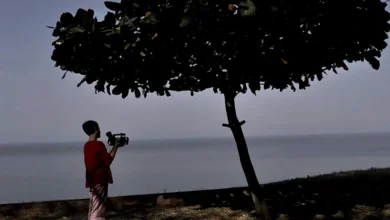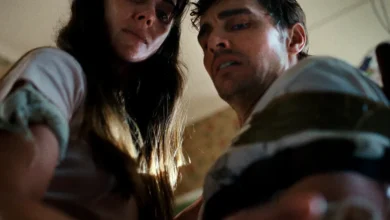

Allow me to propose a theory: The Phoenician Scheme is the third part of what we shall loosely and unofficially refer to as Wes Anderson’s ‘Life of a Filmmaker Trilogy’. 2021’s The French Dispatch was his unabashed ode to the maverick American journos and culture writers of the ’50s and ’60s, yet when taken in the longview it is also a film about that is fascinated with the writing process itself, particularly how the human mind sculpts reality with the use of literary and documentary tools. The film is about finding entertainment in the apparently mundane, and Anderson himself could stand in for any of the scribes on show. Then in 2023 we got the meta-cinematic jewel, Asteroid City, a film that’s about directing, but more specifically, the process of dramatising, as in, how we transpose these fantastic texts into the visual medium.
The Phoenician Scheme, then, shifts its focus a little ways away from the conventional artistry of writing and directing, and here we have a story about producing, and the people whose role it is on a film set to bring a plan together. It’s questionable whether Anderson sees this trilogy as being specifically reflective of his own personal methods, but these three films when taken in concert comprise a top-to-tail dissertation on the joys and the traumas of making movies. This project is in many ways his cinematic rejoinder to Benjamin Britten’s ‘The Young Person’s Guide to the Orchestra,’ a classical composition he employed so beautifully in Moonrise Kingdom.
Get more Little White Lies
In this instance, there’s a sense that Anderson feels that making a film is less an act of skill or knowhow more than it is an act of diplomacy and making sure you have the right people just on side enough to make the whole thing happen. Benicio del Toro is introduced as a melancholy arms dealer named Zsa-zsa Korda, father to a small phalanx of inquisitive young sons (whom he forces to live in a house across the street from his own castle-like mansion), and one daughter, a cantankerous and semi-estranged pipe-smoking nun named Sister Leisl (Mia Threapleton). Due to his various destabilising antics in the region, he has become the target of multiple (failed) assassination attempts, but like a cat who just burned through its eighth life, a moment of existential reflection is now forced upon him.
Del Toro plays Zsa-zsa as a fearless rogue who refuses to dwell on a checkered past. He sees no irony or good luck in his ability to survive, and deals with all aspects of life in a tone of high, almost grandiose seriousness. When he’s flying his private jet and the hull starts to wobble, from turbulence perhaps or an incoming missile, he will glance up from his latest doorstop reading material (usually a dry entomological textbook), and assure his fellow passengers of his total lack of worry. As with a film producer, you reach a point in your career where you can’t allow yourself to be scared of such trivialities as personal antagonism, financial stress, physical injury or death from above, and that’s Zsa-zsa to a tee.
Source link




